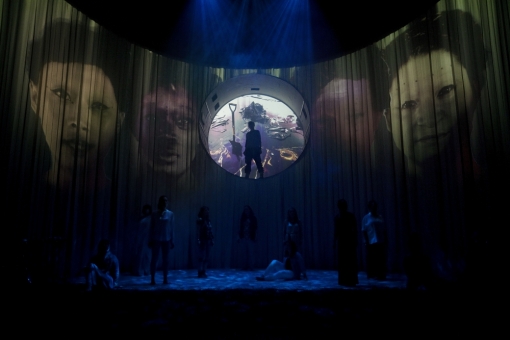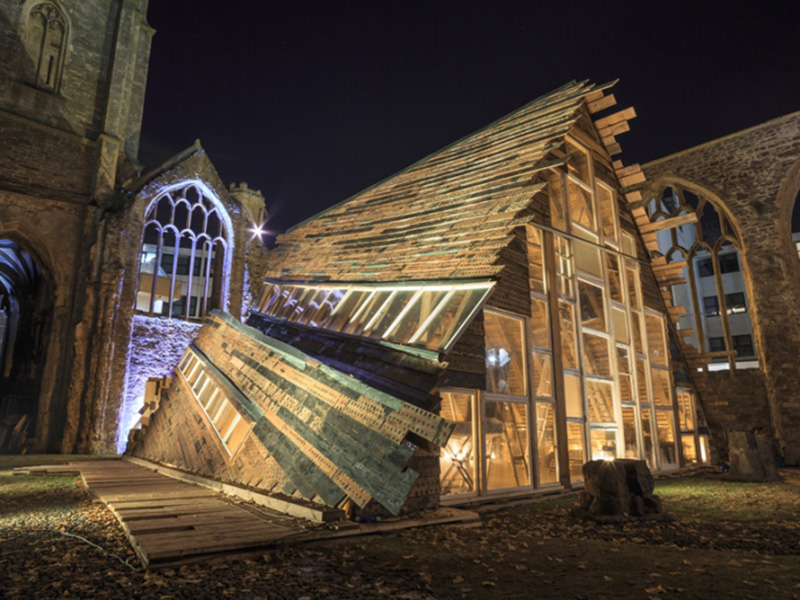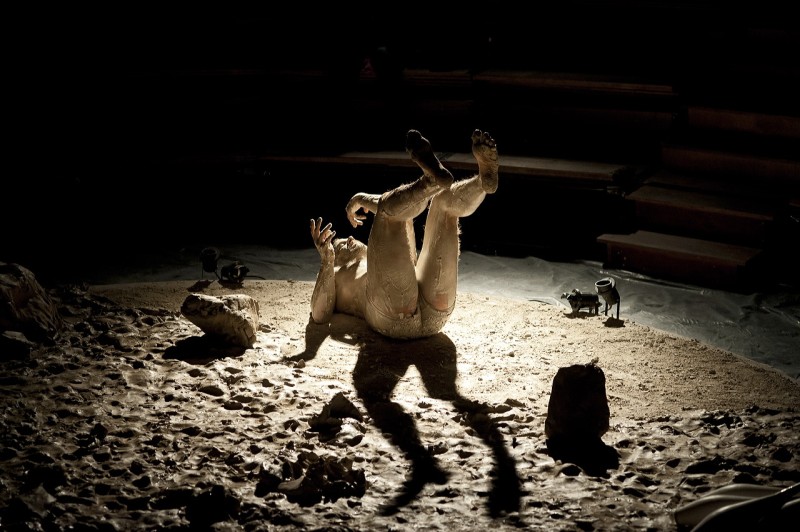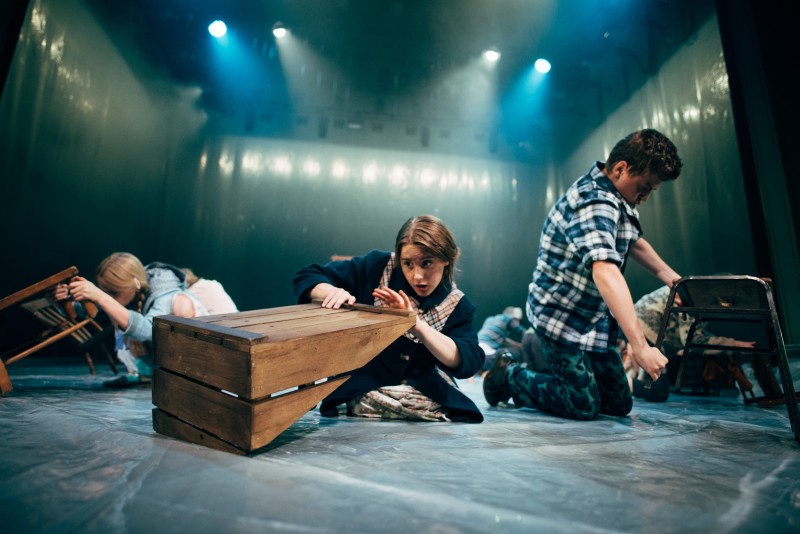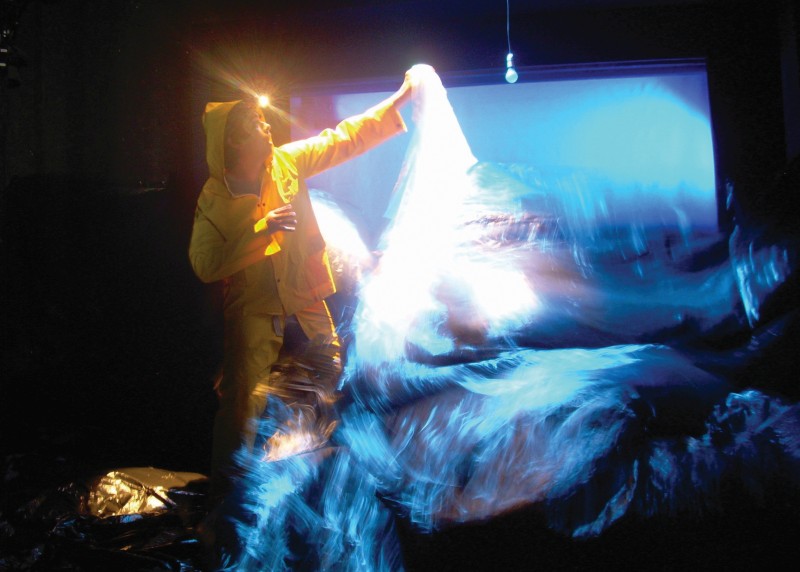Imagine you’re visited by an unearthly power that tells you that three hundred years from now, following the failure of the world’s economies and devastation caused by climate change, the only hope for the continuation of human life rests with one young woman. Aphra’s fate is sealed: in two weeks’ time she will slip, fall into a flooded river and die. That is, unless you act now. You can stop this from happening. You have agency in the universe’s destiny. This is the position that ten women find themselves in at the start of Melanie Wilson’s new sci-fi opera. What follows is their attempt to hear this call to arms for what it is and work out how to respond, in a race against time and the shrinking window of opportunity to save Aphra’s life.
To call it an opera is perhaps a little misleading. Co-composed by Wilson and Katarina Glowicka, the score is more episodic than a cogent whole, but with a persistent striving to elicit harmony, rhythm and choral richness from discordance. The piece does borrow opera’s often heightened quality, though, and Wilson’s culturally diverse ensemble, gifted with some extraordinary voices whose individuality is celebrated in some virtuosic arias, moves about the stage like planets orbiting an invisible sun. The piece shifts between this convocation’s highly stylised, impassioned, sometimes searching, sometimes declamatory dialogue and the more naturalistic narrative of Aphra, who, in a warm and engaging performance by Kate Huggett, sweet-voiced, gamine, vulnerable yet resilient, is perhaps more accessible to us than our contemporaries who are called upon to save her life.
Visually, it’s marvellous. Fly Davis has created a high curtained semi-circular chamber, which, flooded with Will Duke’s vivid projection design that fluidly segues between swirling galaxies, ravaged landscapes and text, is almost as immersive as a 3D cinema experience. High in the centre of this curtain is a circular pod, part Aphra’s weather station refuge, part sun, part crystal ball.
The piece relies on some familiar sci-fi tropes: ethereal polyphonic soundscapes tell us we’re in space; moony shimmering faces communicating in remote, distorted voices are the unearthly powers; and Aphra, kitted out in the obligatory combats, spends a lot of time peering at charts and recording a log. And the idea isn’t new either: that, in Wilson’s words, female stewardship can be the ‘arrowhead of change’. The call to arms is a call to work with what exists – ‘small acts of affinity and resistance’, to see ourselves differently, to be unafraid to speak out. The piece’s ambitious attempt, it seems to me, is to enable a different mode of conversation, to harness a different form of attention to what it goes without saying are vastly important ideas. And it seems to be trying to perform the alternative way of being that it proposes – to inhabit a space that’s simultaneously powerful and gentle, clear and complex.
However, whilst the message itself is unapologetically explicit, the piece nevertheless seems cautious about how to position itself. In the programme notes, Wilson writes that in the future world of the show ‘feminists are men as well as women’, but then goes on to say: ‘This opera focuses on women, though,’ in what seems an attempt to appease both those who would celebrate and those who would revile its overt feminism. I’m curious about this peculiar equivocation, and I’m also curious about my need for the piece to be somehow stronger, to be irresistible in its challenge. What’s going on when we can see very clearly what a piece is asking of us, when we agree with what it’s asking of us, and we still say, ‘Ask it better’? Opera for the Unknown Woman may be flawed, but those flaws seem to manifest something of the difficulty of speaking simply and directly when the stakes are so high and when we appear so determined to listen only on our own terms.

